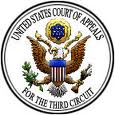Earlier this month, a Judge in the Eastern District of New York granted summary judgment to a defendant on technical e(11) violations finding that “his grievance is not merely meritless, it is frivolous.”[1] In his decision, the Judge reiterated an observation that he had made seven years ago describing a rising tide of FDCPA complaints brought by a “cottage industry” of “professional plaintiffs” who file suits for violations of the FDCPA.[2] In this case, the Plaintiff called the Defendant’s office and heard a recorded message identifying the Defendant as a debt collector and informing the Plaintiff that its communications were attempts…
Posts published in August 2013
Yesterday, the Third Circuit Court of Appeals held that the Telephone Consumer Protection Act (47 U.S.C. § 227) allows a consumer to revoke her prior express consent to be called using an autodialer or prerecorded voice. In its decision, Gager v. Dell Financial Services, the Circuit Court reversed a district court’s earlier finding that once a consumer provided consent to receive autodialed or prerecorded calls, a consumer cannot later revoke the consent. Persons using autodialer technology or prerecorded messages are required by the TCPA to obtain the “called party’s” “prior express consent” before making their calls. While some types of calls…
If your organization might have violated a consumer financial protection law, should it disclose that potential violation to the Consumer Financial Protection Bureau? It seems that at least one CFPB insider believes that the potential violation should be self-reported. At today’s meeting of the Consumer Financial Services Committee in San Francisco, Peggy Twohig, CFPB Assistant Director, Office of Supervision Policy, offered a few remarks on whether a covered entity should self-report conduct where the law is not clear on whether the conduct violates consumer financial protection law. In concluding that an entity should self-report even these “grey issues,” Twohig noted that covered entities…



